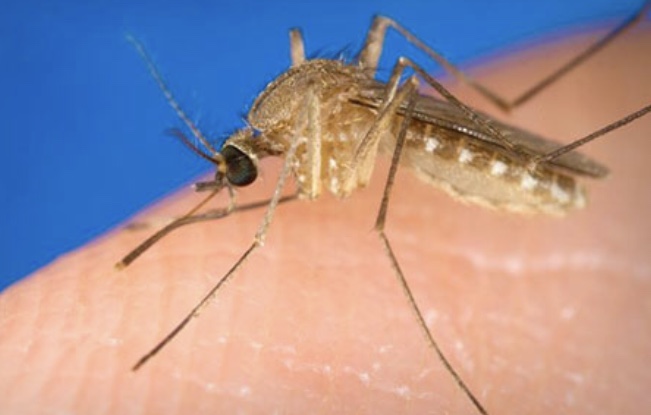NEW CITY, NY – Rockland County officials announced on Thursday that the first pool, or group, of mosquitoes to test positive this year in Rockland County for West Nile Virus (WNV) has been confirmed by the New York State Department of Health.
The infected mosquitoes were collected from a trap in the Town of Ramapo during the week of July 15th as part of the County’s ongoing mosquito surveillance efforts. No human cases have been reported this season. “This is typically the time of the year we expect to see a rise in West Nile Virus activity and this positive mosquito pool confirms that,” said County Health Commissioner Dr. Patricia Schnabel Ruppert.
While most mosquitoes do not test positive for disease-causing viruses, a bite from a West Nile Virus -infected mosquito can cause serious illness, and in some cases, death.
Tips on how to reduce mosquitoes around your home and yard:
– Check your property for ANY items that can hold water. Get rid of the items or empty the water out and scrub the inside of the item at least once a week.
– Drill drain holes in the bottoms of recycling containers, turn over wading pools and wheelbarrows when not in use, and remove all discarded tires.
– If you have a swimming pool or spa that is not in use, drain the water off the cover or treat the standing water with Mosquito Dunks®, and post accordingly. The dunks are available free of charge at the Health Department, Building D, 50 Sanatorium Road in Pomona, Monday – Friday from 9 am to 4 pm, while supplies last.
– Tightly cover water storage containers (buckets, cisterns, rain barrels) so that mosquitoes cannot get inside to lay eggs. For containers without lids, use wire mesh with holes smaller than an adult mosquito.
– Use an outdoor flying insect spray where mosquitoes rest. Mosquitoes rest in dark, humid areas like under patio furniture, or under the carport or garage. When using insecticides, always follow label instructions.
– If you have a septic tank, repair cracks or gaps. Cover open vent or plumbing pipes. Use wire mesh with holes smaller than an adult mosquito.
– Make sure that roof gutters drain properly, clear vegetation and debris from the edges of ponds, and remove leaf debris from yards and gardens.
Symptoms of the West Nile Virus (via CDC)
– No symptoms in most people. Most people (8 out of 10) infected with West Nile Virus do not develop any symptoms.
– Mild illness with fever in some people. About 1 in 5 people who are infected develop a fever with other symptoms such as headache, body aches, joint pains, vomiting, diarrhea, or rash. Most people recover completely, but feeling tired and weakness can last for weeks or months.
– Serious symptoms in a few people. About 1 in 150 people who are infected develop a severe illness affecting the central nervous system such as encephalitis (inflammation of the brain) or meningitis (inflammation of the membranes that surround the brain and spinal cord).
– Symptoms of severe illness include high fever, headache, neck stiffness, stupor, disorientation, coma, tremors, convulsions, muscle weakness, vision loss, numbness, and paralysis.
– Severe illness can occur in people of any age; however, people over 60 years of age are at greater risk. People with certain medical conditions, such as cancer, diabetes, hypertension, kidney disease, and people who have received organ transplants, are also at greater risk.
– Recovery from severe illness might take several weeks or months. Some effects to the central nervous system might be permanent.
– About 1 out of 10 people who develop severe illness affecting the central nervous system die.


 Police/Fire/EMS1 week ago
Police/Fire/EMS1 week ago
 Community1 week ago
Community1 week ago
 Politics1 week ago
Politics1 week ago
 Government1 week ago
Government1 week ago


















